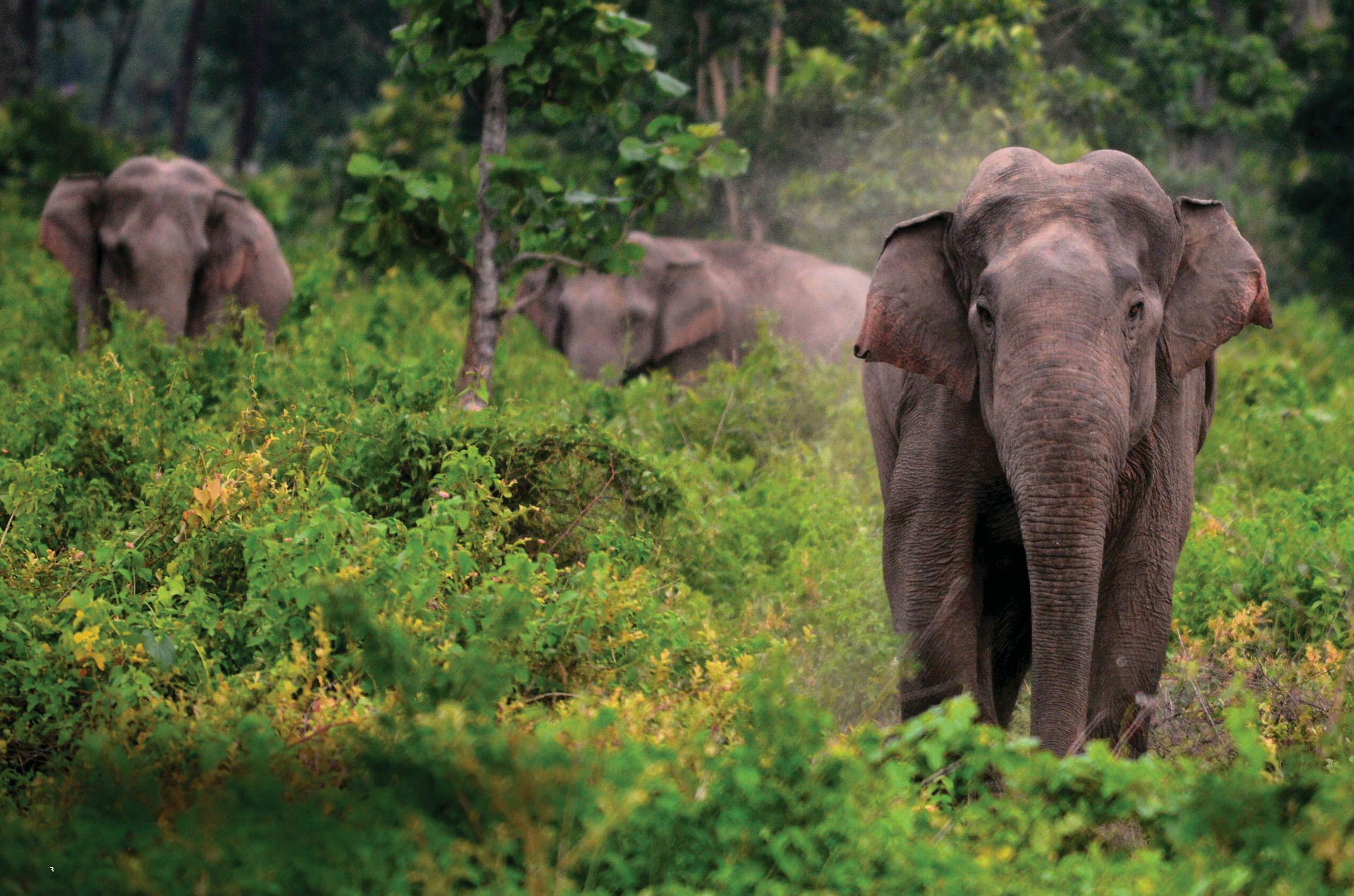Try GOLD - Free
UNDER PRESSURE
BBC Wildlife
|October 2023
As India's human population continues to grow and natural habitats become depleted, space for the country's elephants is at a premium

ELEPHANTS ARE valued more in India than all other animals put together," says Anish Andheria, CEO of Wildlife Conservation Trust. "Lord Ganesha, the most worshipped and revered Hindu God, is half-human and half-elephant."
Sadly, revered status isn't keeping these animals safe. Elephants were declared the National Heritage Animal of India in 2010 and granted Schedule 1 status - the highest protection level in the country, on a par with tigers. But elephants and people are frequently coming into contact, leading to horrific flashpoints of violence in which both are losing their lives. "Around 1,400 human and 300 elephant casualties occurred in India due to human-elephant conflict between 2018 and 2020," Andheria explains, the figure not including captive elephants.

Asian elephants (Elephas maximus) are listed as Endangered on the IUCN's Red List. Their numbers have declined by at least 50 per cent over the past three generations, largely due to habitat loss.
India is currently home to about 27,000 elephants, found in 17 states, including Arunachal Pradesh, Uttar Pradesh and West Bengal. While conflict between elephants and people is often associated with the African species, and more attention in India is paid to issues around tigers, leopards and other big cats, human-elephant conflict (HEC) is at crisis levels in the country.

This story is from the October 2023 edition of BBC Wildlife.
Subscribe to Magzter GOLD to access thousands of curated premium stories, and 10,000+ magazines and newspapers.
Already a subscriber? Sign In
MORE STORIES FROM BBC Wildlife

BBC Wildlife
"I was terrified the elephant would ram us"
African elephant in Kenya
2 mins
January 2026

BBC Wildlife
ALL YOU EVER NEEDED TO KNOW ABOUT THE Fennec fox
THE FENNEC FOX IS THE SMALLEST fox in the world, with a body length that can be as little as 24cm.
3 mins
January 2026

BBC Wildlife
INTO THE PLASTISPHERE
A unique synthetic ecosystem is evolving in our oceans – welcome to the plastisphere
7 mins
January 2026

BBC Wildlife
“More than half of all animal life exists in a parasitic relationship, and all life lives in symbiosis”
Our survival depends on species evolving to live together - but some relationships take dark turns
7 mins
January 2026

BBC Wildlife
Are animals able to dream?
SLEEP IS A MYSTERIOUS THING. FOR A long time, we weren't sure why we do it.
1 mins
January 2026

BBC Wildlife
Does a cuckoo know it's a cuckoo?
ABSURD LITTLE BIRDS ACROSS THE world lay their eggs in the nests of other species, leaving the hapless parents to raise a changeling at the expense of their own offspring.
2 mins
January 2026

BBC Wildlife
Orcas killing young sharks
Juvenile great whites are easy prey for orca pod
1 mins
January 2026

BBC Wildlife
Ocean goes on tour
Acclaimed film touring the UK, backed by live orchestra and choir
1 min
January 2026

BBC Wildlife
Feisty bats hunt like lions
Winged mammals use a 'hang and wait' strategy to take down large prey
1 mins
January 2026

BBC Wildlife
SNAP-CHAT
Richard Birchett on magical merlins, wily coyotes and charging deer
2 mins
January 2026
Translate
Change font size
